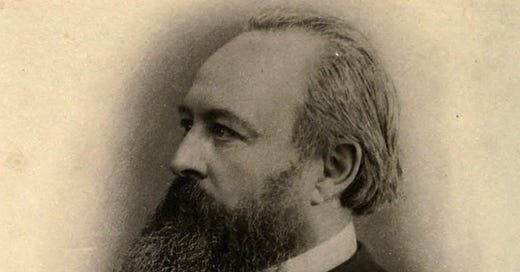The English Catholic historian, John Dalberg Acton, known as Lord Acton, died in Tegernsee, Germany on this date, June 19, in 1902. He was 68.
Born at Naples, Italy on January 10, 1834, his father was Sir Richard Acton, a diplomat, and his mother was heiress of a distinguished Bavarian family, the Dalbergs.
He engaged in politics, entering the House of Commons in 1859. The same year he succeeded John Henry Newman as editor of the Catholic periodical “The Rambler.” In 1862 the publication became a quarterly named “The Home and Foreign Review” focusing on social, political and theological ideas. He became known as an articulate defender of religious and political freedom. “He argued that the church faithfully fulfills its mission by encouraging the pursuit of scientific, historical, and philosophical truth, and by promoting individual liberty in the political realm.”1
From 1895 until his death, he was professor of modern history at Cambridge—the great irony here is that he earlier was barred from attending Cambridge because of his Catholicism.
Acton is widely quoted, including the oft repeated, “Power tends to corrupt and absolute power corrupts absolutely.”
Many others bear repeating, including these history-related:
“The value of history is certainty—against which opinion is broken up.”
“History is a great innovator and breaker of idols.”
“Live both in the future and the past. Who does not live in the past does not live in the future.”
For a brief but detailed biography of Acton see the New Advent Catholic Encyclopedia here.
acton.org





We need more Actons today. People willing to stand for the good.
How valuable this article is! & everything you do.